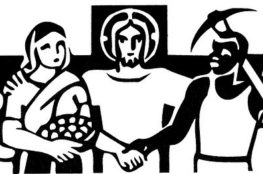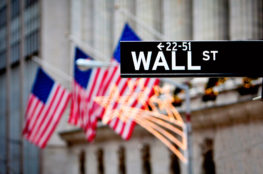Much has been made of Steve Bannon’s (President Donald Trump’s chief strategist) 2014 talk for a conference at the Vatican where, inter alia, he laid forth his vision of the crisis of the West, including the problems associated with both “crony capitalism” and “libertarian capitalism.” Eric Posner, a University of Chicago law professor, has already penned a sterling commentary on Bannon’s remarks and how they relate (or not) to Trump’s personal predilections. With respect to capitalism in particular, Posner concludes that Bannon and Trump hold divergent views; the former “thinks that faith should guide the capitalist but he does not know what it should tell the capitalist to do” while the latter “celebrates all the features of capitalism that moralists like Bannon detest: its glitz and superficiality, its Darwinian obsession with ‘winning,’ and its contempt for ‘losers.’”
While Bannon’s precise religious views are unclear, his critique of certain forms of capitalism is not dissimilar from those which emanate from the faith-based (and primarily Catholic-run) Acton Institute. In fact, during his Vatican talk, Bannon singled out Acton for being “a tremendous supporter of” what he calls “entrepreneur capitalism.” Unfortunately, but not surprisingly, Bannon doesn’t define “entrepreneur capitalism” except by negation; it apparently relies neither on direct government support (cronyism) nor adherence to an ostensibly free market, stripped bare of regulation and taxation (libertarianism). What Bannon failed to realize, however, is that Acton, by and large, subscribes to the libertarian vision of capitalism, albeit one with occasional references to “the Judeo-Christian tradition” (whatever that means). In fact, in a November 2016 commentary on Bannon’s talk, Joseph Sunde of the Acton Institute expressed worry over how Bannon’s views would dovetail “with the protectionist priorities and nationalist blind spots of the alt-right and Trump’s stated policy agenda.” At the end of the day, Acton sees little-to-no room for government interventions into the market, even if such interventions are expressly contemplated by Catholic social teaching.
According to Posner, one of the problems with Bannon’s critique of “crony capitalism” (a problem that can also be associated with the general orientation of the Acton Institute) is that it “appeals to a mythical age of smallholder capitalism.” This is a common tactic employed by Actonites and other Christian free-market apologists: they decry the dominant form of capitalism we see today while positing the benefits of an alternative form which has never actually existed. Actonites heap praise upon the “benefits of capitalism” without acknowledging that whatever concrete benefits may have emerged came from the very form of “crony capitalism” they claim to despise. Even when they concede as much, they are quick to opine that such benefits would flow more abundantly if only “cronyism” was eliminated. But why can’t the opposite be true? Perhaps if “cronyism” ceased and “libertarianism” took root, the concrete benefits of capitalism that we have witnessed historically would dry up. Actonites, like Bannon, are guided more by a priori ideological commitments than empirical reality.
To be fair to Bannon, his pro-capitalist ideology is not entirely devoid of a religious understanding as evidenced by his belief that “if you look at the leaders of capitalism [in the past], when capitalism was I believe at its highest flower and spreading its benefits to most of mankind, almost all of those capitalists were strong believers in the Judeo-Christian West.” Posner refers to this as “religiously based smallholder capitalism.” Even though Bannon’s history might be a little shaky, his instincts are in the right place. Without religion, or more specifically Christianity, to shape and guide it, any economic system is bound to be captured by diabolical interests concerned with greed over justice. The market supplies much, but not its moral contour. This reality has been long recognized by the Catholic Church, especially in the great social encyclicals of Popes Leo XIII and Pius XI. Regrettably, fewer and fewer Catholics living under the banner of capitalism are willing to recognize as much; they prefer instead to pledge allegiance to the apparent “hard findings” of “economic science” over-and-against the guidance of Holy Mother Church.



